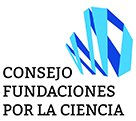Audiovisual formats are becoming increasingly more important, both in obtaining resources for research and in scientific dissemination. This is particularly true if it reaches the target public in an attractive, contemporary and understandable way. This new course from the Esteve Foundation intends to set the basis on how to convey scientific projects by recording and editing a short, simple, direct and effective video using a mobile telephone camera or similar.
How to disseminate your research project in a 60″ video is addressed to students and also to scientific and media professionals interested in disseminating their projects and science in general. The course is focused principally on biomedical disciplines and is structured in three main blocks:synthesis, creativity; recording and editing.
The dynamics of the seminar are very active combining theory classes, practical exercises, team and individual work and joint discussions. During the course, two videos will be edited that summarize the same scientific project, but using different narratives. Hence, on registration participants will be asked to propose a subject, research or scientific project on which they would like to make a video. At the end of the course, all participants will have the opportunity of presenting an individual video on line to be appraised and discussed.
Programme (two days):
– Exercise: Seeking what is really special about each project
– Main narrative genres and methods of staging
– Exercise: Approach and script of the video of the project selected to work on
– Basic principles of filming
– Exercise: Pre-production of the video
– Exercise: Filming the video
– Exercise: Editing the final video
– Viewing videos and comments
Professor:
Ana Montserrat Rosell
Graduated in Media Studies with a Master Degree in Script writing from Universidad Autónoma de Barcelona, she has been director of the Channel 2 scientific dissemination programme, tres 14 since it was launched in 2008. She also wrote the scientific documentary Camino a la Inmortalidad, of the La 2 Imprescindibles series. She previously worked as a scriptwriter and director of a range of nationally and internationally produced documentaries, along with entertainment programmes and fiction series. Her passion for science and to understand the world that surrounds us, has led her to follow a career in audiovisual science dissemination. As a teacher, she has participated in various seminars and scientific dissemination master courses of the Esteve Foundation, the Instituto RTVE, Universitat Pompeu Fabra and Unversitat Autònoma de Barcelona.
General information:
– This seminar is addressed to students and also to scientific and media professionals, interested in disseminating their projects and science in general. The course is focused principally on biomedical disciplines.
– All technical material will be provided to make and edit the videos.
– The seminar will last for two days with morning and afternoon sessions (9 am to 6 pm), with 16 hours in total.
– The inscription fee is 100 € . This includes documentation of the seminar, coffee breaks and two working lunches. Accommodation and travelling expenses will be covered by the participants.
– The number of participants is limited to a maximum of 20 places per course.
– Owing to the nature of the seminar, inscription not only means active participation of attendants and the commitment to attend all the sessions, but also maximum punctuality in order not to affect the dynamics of groups.
– A certificate of attendance will be given to each participant.
Next edition:


